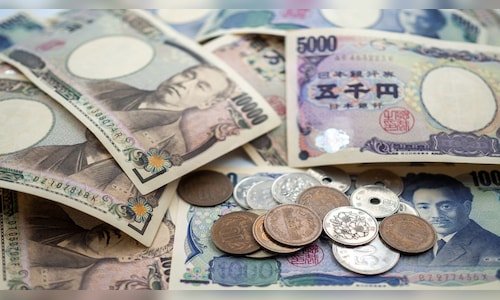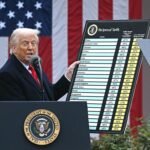The currency fell as much as 0.7% against the dollar, wiping out Friday’s advance amid an increase in political uncertainty. Japanese stocks rose amid the positive tailwind of a weaker yen. Strategists said longer-maturity government bonds look vulnerable amid growing concern over fiscal spending.
Ishiba’s resignation ends a tenure marred by bruising election results and leaves markets in limbo over Japan’s fiscal direction. His exit also heightens investor uncertainty in the weeks ahead until a new leader emerges.
“Ishiba’s step-down can be seen as a sign that the party is ready to move on to the next leader, who will bring stability for the longer term,” said Anna Wu, cross-asset strategist at VanEck in Sydney. “So while in the immediate term yen and bonds felt pressure, equities are seeing more hope than uncertainty.”
Oil edged higher after OPEC+ agreed on Sunday to raise production at a modest rate next month. Crude futures had slumped last week on signs the output boost was coming.
US equity futures ticked up after the benchmark S&P 500 Index slid on Friday after a weaker-than-expected US jobs report on Friday ratcheted fears of a rapidly cooling labor market. Australian stocks fell in early trading, tracking moves on Wall Street.
Treasuries ticked lower from the start of trade after rallying on Friday when the weak payrolls numbers boosted bets on Federal Reserve interest-rate cuts this year. The US two-year yield rose one basis point to 3.52%, paring Friday’s eight basis point drop. Australian bonds opened higher following Friday’s gain in Treasuries.
The Bloomberg Dollar Spot Index crept higher after falling 0.4% on Friday.
The dollar could retest its year-to-date lows, Commonwealth Bank of Australia strategists including Joseph Capurso wrote in a note to clients. “Given the focus on the labor market in FOMC chair Powell’s recent speech, market participants may increase pricing of a 50 basis point cut to the Funds rate next week.”
Traders will be looking to Chinese trade data later Monday to gauge the impact of US trade war on exports and the broader economy. China’s bond market may also be in focus after the Financial Times reported officials are considering allowing Russian energy firms to resume issuing yuan-denominated notes.




















